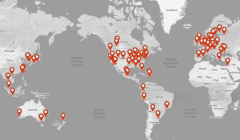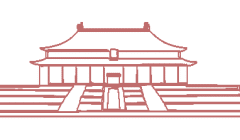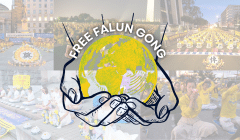Detailed List of Violations of the P.R.C Constitution
The current P.R.C Constitution was adopted in 1982, though there have been more recent amendments. As the following analysis indicates, many of the rights provisions have been severely breached in the campaign against Falun Gong.
Violation of Freedom of Religion:
Article 36: (1) Citizens of the People’s Republic of China enjoy freedom of religious belief. (2) No state organ, public organization, or individual may compel citizens to … not to believe in, any religion; nor may they discriminate against citizens who believe in … any religion. (3) The state protects normal religious activities.
Since, as far as legal definitions are concerned, Falun Gong is a religious and spiritual practice, depriving people in China of the right to practice it by definition violates their freedom of religion. The measures taken to wipe out Falun Gong, including torture (link) and “re-education” sessions, have aimed at forcing adherents to renounce their belief in Falun Gong’s teachings and reject its core principles of truthfulness, compassion, and forbearance (about).
Violations of the Freedom of Expression:
Article 35: Citizens of the People’s Republic of China enjoy freedom of speech, of the press, of assembly, of association, of procession and of demonstration.
Even before Falun Gong was officially banned in July 1999, the CCP had begun encroaching upon these freedoms. Starting in 1996, top Party officials prohibited the publication of Falun Gong books, manipulated state-run media to print anti-Falun Gong articles, and in the spring of 1999, used fire hoses to break up group meditation sessions in parks.
Following the ban, violations of these rights have exacerbated and include arresting adherents for practicing Falun Gong exercises in a public park or raising a banner on Tiananmen Square. At it’s peak, in March 2002 the regime ordered any Falun Gong caught distributing information about the persecution shot “on sight” (article).
Attacks on Personal Dignity:
Article 37: The personal dignity of citizens of the People’s Republic of China is inviolable. Insult, libel, false charge, or frame-up directed against citizens by any means is prohibited.
The CCP has fabricated and disseminated hate propaganda, in particular through its massive state-run media, demonizing Falun Gong and inciting hatred against the Falun Gong in order to justify its persecution (about).
Violations of the Right to Petition:
Article 41: (1) Citizens of the P.R.C. have the right to criticize and make suggestions to any state organ or functionary. Citizens have the right to make to relevant state organs complaints and charges against, or exposures of, any state organ or functionary for violation of the law or dereliction of duty … (2) The state organ concerned must deal with complaints, charges, or exposures made by citizens in a responsible manner after ascertaining the facts. No one may suppress such complaints, charges, or exposure, or retaliate against the citizens making them. (3) Citizens who have suffered losses through infringement of their civic rights by any state organ or functionary have the right to compensation in accordance with the law.
Since Chinese citizens have a constitutionally guaranteed right to lodge complaints against state organs, shortly after the banning of Falun Gong, adherents turned up at official petition (shangfang) offices throughout the country. Since the media would not report positively on Falun Gong and lawyers were barred from defending the Falun Gong, many Chinese saw petitioning as a faultless act that is in accordance with the law and good citizenship.
Petition offices nationwide, however, quickly turned into detention centers; as soon as they submitted their petition, the Falun Gong were systematically arrested. Those who mailed their letters or raised banners on Tiananmen Square have also been detained and sentenced to labor camps and prisons.
Violations of the Right to Work:
Article 42: (1) Citizens of the P.R.C. have the right … to work.
Countless Chinese have been refused jobs and promotions, fired, or demoted because they choose to practice and support Falun Gong (related articles). Lawyers representing Falun Gong victims of arbitrary detention and torture have been disbarred.
Violations of the Right to Education:
Article 46: (1) Citizens of the P.R.C. have the … right to receive education. (2) The state promotes the all-round moral, intellectual, and physical development of children and young people.
Many children have been expelled from school and students from university because they practice Falun Gong, their parents practice Falun Gong, or they refuse to openly denounce Falun Gong as required by the P.R.C’s Ministry of Education.
Attack on the Family and Violence against Women:
Article 49: (1) Marriage, the family, and mother and child are protected by the state. … (4) Violation of the freedom of marriage is prohibited. Maltreatment of old people, women, and children is prohibited.
Due to the tremendous pressure by the CCP on the Falun Gong and their loved ones, many families have been torn apart. Law enforcement personnel have arrested parents who practice Falun Gong, leaving the children and elderly to fend for themselves, and partners have been forced to divorce their spouses who practice Falun Gong (about).
Women who practice Falun Gong have been subjected to various forms of sexual torture (about). Pregnant women have been forced to undergo abortions, and nursing mothers have been torn away from their children.
Violations against the Elderly:
Article 49: (4) Maltreatment of old people … is prohibited.
Many elderly people practice Falun Gong in China, but they have not been spared from unlawful detention and mortal torture (article).
Violations of China’s Criminal Law
China’s police law and criminal code prohibit the abuse of detainees and criminalize torture and ill-treatment of prisoners. Nevertheless, in the persecution of the Falun Gong, police, prison and labor camp authorities have systematically tortured and abused Falun Gong detainees or forced other prisoners to do so. Recent evidence of organ harvesting indicates that thousands practitioners in custody have also been methodically killed. To date, however, no Chinese official has been investigated or punished.
Article 22 of the Police Law
“People’s police must not have any of the following behaviors:
. . . (4) interrogate suspects forcefully with penalty, abuse or penalize suspects;
. . . (5) unlawfully deprive personal freedom of others, unlawfully cross-examine other person’s body, belongings, residence or other place;
. . . (7) beat other people or incite others to beat the third party.
Section 247 of the 1997 Criminal Law of the PRC
“Judicial workers who extort a confession from criminal suspects or defendants by torture or who use force to extract testimony from witnesses, are to be sentenced to three years or fewer in prison or put under criminal detention.”
Article 248
Article 248 of the Criminal Code criminalizes the use of violence by law enforcement officers against detainees. In an affidavit to a U.S. court, Professor Robert Berring from the University of California School of Law at Boalt Hall explained the content of the article as follows (article):
“Article 248 of the Criminal Law of 1997 makes it a criminal offense for any ‘supervisory or management personnel’ in a custody or supervision institution like a prison, a detention house, or a custody house, to ‘beat or physically abuse their inmates.’”








